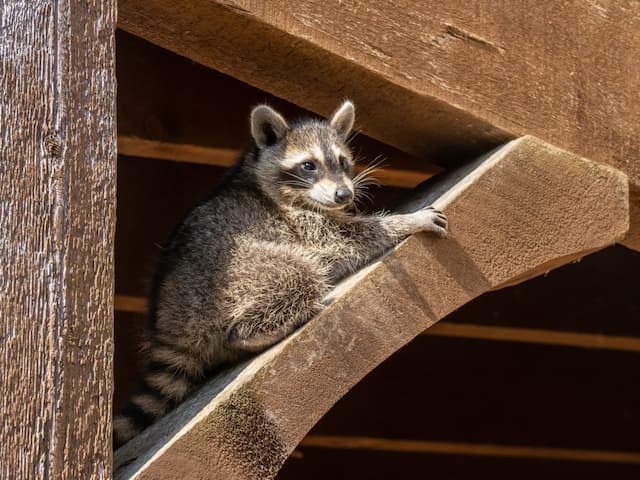Although raccoon babies are undoubtedly cute, playing with one could be extremely dangerous. To deal with raccoons and their kits contact a pest control service in Hamilton.
Rabies risk
Health professionals in the Hamilton area have been dealing with an outbreak of raccoon rabies since 2015. But, over the last few years, the City of Hamilton has seen an increase in reports of homeowners interacting with baby raccoons, prompting warnings from the authorities.
Although rabies is also carried by feral cats and dogs, and other wild creatures, raccoons are especially active during the baby season and are therefore highly likely to come into contact with people.
One scratch is all it takes to potentially transmit the raccoon rabies virus to a human, and it can be fatal. Be warned!
Hamilton residents are requested to report sightings of any sick or wounded raccoons to the city’s Animal Services department, rather than taking matters into their own hands.
Furious parent hazard
Mother raccoons are single parents, raising their families alone until the kits are independent. The bond between Mom and her babies is unshakable, and any creature (including you and your family) who gets between the mother raccoon and her kits is in big trouble.
Raccoons are quite large animals, weighing up to ten pounds, and they come armed with sharp teeth and claws that can inflict very nasty injuries, as anyone who has been on the receiving end of an attack by an irate mother raccoon will testify. Also, although baby raccoons can be curious and appear friendly, they can still bite and scratch if distressed or frightened; so, keep your distance!
Often, raccoon attacks on people happen because the person has tried to remove the kits from their nest or has encountered a baby raccoon wandering around their yard and picked it up, mistakenly believing that the little one is an orphan.
Juvenile raccoons are independent of their mother at around eight months old. At that age, the kits leave the den and begin foraging for themselves. However, the youngsters won’t leave Mom’s care completely until the following spring or summer. So, if you find a small raccoon wandering around your yard, it’s most likely not an orphan, and you should leave it alone.
Discouraging baby raccoons
You can take steps to keep baby raccoons away from your home by taking a few simple precautions:
- Keep garbage double-bagged and secured in an animal-proof trash can.
- Don’t leave pet food and water outside overnight.
- Do not feed raccoons, no matter how cute they are!
- Keep your yard brightly lit at night, ideally by a motion-activated halogen light
Of course, if you can prevent a mother raccoon from giving birth on your property, you won’t have a problem during baby raccoon season.
Preventing nesting
Once a mother raccoon has set up a home on your property and given birth, there’s not a lot you can do except wait until the kits have left the nest. You can then contact your local wildlife removal specialist and ask their experts to trap, remove, and relocate the whole raccoon family.
The following simple actions can help to keep a female raccoon from nesting on your property:
- Close yard gates, seal up any gaps, and repair damaged fencing
- Install vent covers on your roof to prevent raccoons from accessing your attic
- Install a cover or screen on top of your chimney
- Seal access to crawlspaces underneath your porch or deck
- Trim trees so that their branches don’t overhang your roof
It’s crucial that you do not seal up access to the den if there’s a chance that there are baby raccoons inside.
Final thoughts
Before you take any action to remove problem raccoons, always seek the advice of a good wildlife removal specialist in the Hamilton area. They will have the experience to know what action to take, especially during baby raccoon season.

